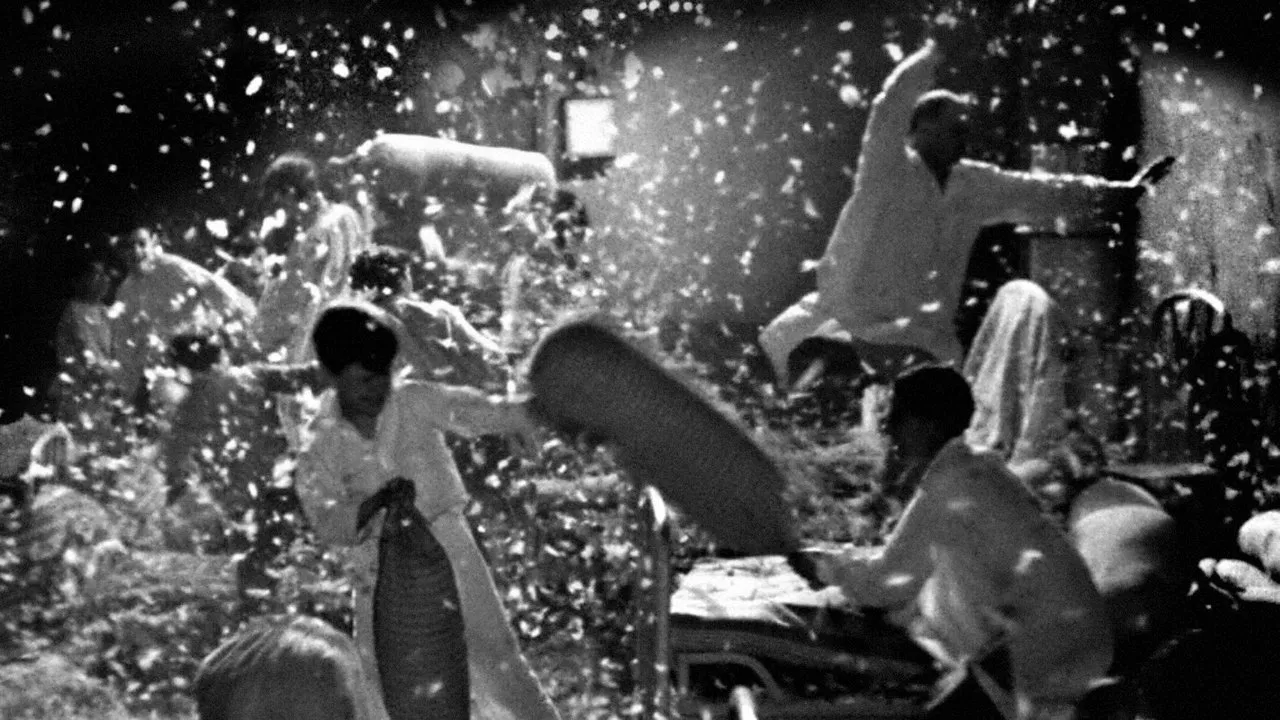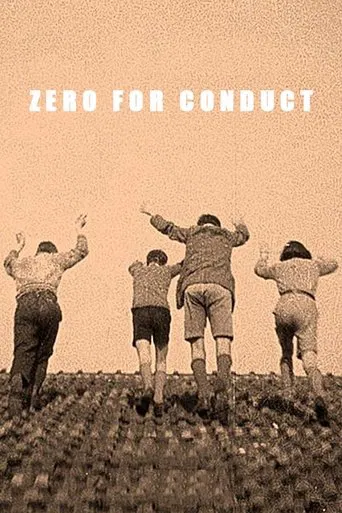ada
the leading man is my tpye
Comwayon
A Disappointing Continuation
StyleSk8r
At first rather annoying in its heavy emphasis on reenactments, this movie ultimately proves fascinating, simply because the complicated, highly dramatic tale it tells still almost defies belief.
Bessie Smyth
Great story, amazing characters, superb action, enthralling cinematography. Yes, this is something I am glad I spent money on.
Martin Teller
In the spirit of anti-authoritarian revolution, a playful rallying cry for rebellion and non-conformity. I still find the film a bit sloppy, but perhaps sloppy is suitable for this material. Vigo has a lot of fun with form, making the structure as anarchic as the content, including surreal sequences that embody the heroes with magical properties. Again, we have some masterful visual work, reaching a crescendo in the magnificent trashing of the dormitory scene. The movie is very witty and subversive, although I do have to admit that I'm not likely to watch it a third time as it's a work I respect more than I enjoy.Zero for Conduct - 8/10
BJJManchester
A desultory,episodic,but mostly lustrous piece of cinema by one of it's true iconoclasts,Jean Vigo's ZERO DE CONDUITE has a mixture of all kinds of styles to tell it's fairly slight story of a boarding school rebellion: surrealism,satire,symbolism,social comment,anarchism,humour and poetic realism.This accumulation of methods tends to overwhelm what plot there is,and since the film is only around 40 minutes long (Vigo apparently had filmed much more footage which had to be removed at the whims of a cautious,penny-pinching producer),this is not necessarily a bad thing.40 minutes has usually been a rather unwieldy running time in the world of movies,caught in no-man's land between the short and the feature,and these problems are evident during this film,with scenes that seem to end rather abruptly,a rather choppily constructed storyline and characterisations that are not fully detailed enough to understand their various traits of behaviour and actions.Nevertheless,thanks to Vigo's considerable cinematic gifts,the importance of ZERO DE CONDUITE and his three other films in his tragically short lived career,this will remain one of the most notable films of it's type in cinema history,influencing not just the French New Wave but filmmakers all over the world.In it's plotting (which was too much for the French authorities who banned it's showing for decades) and cinematic style (the use of slow motion and sound for example,unusual for the period),Vigo was clearly an artist ahead of his time,and was only truly appreciated many years after his untimely death.We can be grateful that,despite the inevitable film age deterioration and dated technical quality,his cinematic ideas remain relevant to the present day.RATING:8 out of 10.
JoeytheBrit
Vigo's first (and penultimate) fiction feature is a precocious but messy work that serves notice of the huge talent he possesses while clearly showing that he is still a man learning his trade. The story as such tells of a revolt by schoolboys against their strict masters, but it wanders all over the place and appears either to have suffered at the hands of some inept editor's scissors, or to contain an abundance of nascent ideas that Vigo has chosen – or been forced – to put to screen before they were fully formed. It all makes for a fragmented and episodic structure that nevertheless somehow seems to add to the charm of the piece. Interspersed between these disjointed plot developments are some eerily surreal moments, such as when the midget headmaster straightens his tie in the mirror and his reflection moves away a second or two after him, which ensure that this film, while not the finished article, is never less than fascinating.
MisterWhiplash
...that in Jean Vigo's all-too short-lived career as a filmmaker he didn't make one unsuccessful movie, despite his difficulties. But seeing Zero For Conduct, which was no doubt a big influence (if only in the details of some scenes) for Truffaut's 400 Blows, I do feel a little sorry for it in a way. Watching it, I kept thinking 'is this Vigo's director's cut, or did they make him cut stuff out'? Because within the 41 minute time frame- which comes in over one minute of being a short film- things happen, but they almost happen too fast. Holes are sort of left in the plot, and only occasionally do they becomes a little bothersome (I wanted to see what happened, for example, when the kid told the short principal "go to hell" as it cuts right from that to the kids gearing up for their uprising for the next day). If this were the length of L'Atalante, it might even be just as great as that. It's flaws, if any, are probably also due to budget. It also doesn't help that the print was so scratched, and the subtitles so spotty, that some of the time I wasn't sure what's going on or if a cutaway was right.This all aside, however, Zero For Conduct is a wonderful little song to the spirit of youth, and what it is to be at that age and see authority, practically any authority, as a form of fascism. In fact Vigo makes a point of making the title, Zero For Conduct, part of the repetitive punishment for the students that disobey just in the slightest. It a given until after a while it loses its meaning. We're given a small band of joyful miscreants, Caussat, Colin, Bruel, Tabbard, as they plot to stage a rebellion on the day of the alumni event at the private boys school they attend. Even though one of the professors is actually on the same level of rebellious spirit as them- and at one point does a handstand like one of the other kids and draws a cartoon to prove it- most of the teachers, and the principal with the Napoleon-complex played by the funny Delphin, kill their spirits completely. Vigo's world is almost too much fun though for their rebellion to be too violent or with too many tragedies and so forth, and the anarchy is that kind of childish chaos where it almost comes close to a pillow fight (in maybe my favorite sequence of the film, where the boys do a sort of test-run for their rebellion, laying to waste their sleeping quarters, caught in delirious, masterful slow-motion and sweet music by Maurice Jaubert).If you can find it, and you're already a fan of L'Atalante, you should be in for a very pleasant, early-sound era surprise from Vigo and his great DP Boris Kaufman, with much of it featuring the perfectly goofy experiments with the form that were done in A Propos De Nice, but here with something more of a story. With the quality spotty and all- one of the films most in need of a restoration in fact- Vigo's style never seems too compromised at least, and the sense of pure, cinematic exuberance with what makes life grand and not so grand is up for grabs in a real short shot. We get the little notes of humor, however slight (like the boy doing a little trick with his fingers on the train), and the moments of the dark side (a moment when the principal, with a student at his desk, does some kind of creepy demon pose), and it ends with a cool French school song too. Like Bunuel's Simon of the Desert, I'm not sure if Vigo's film got a bum rap or if he had planned to make it even bigger and with more depth into who these kids are and what the school is like. But like that film as well, what remains contains splendors that can only come from unique minds in film-making. A-

